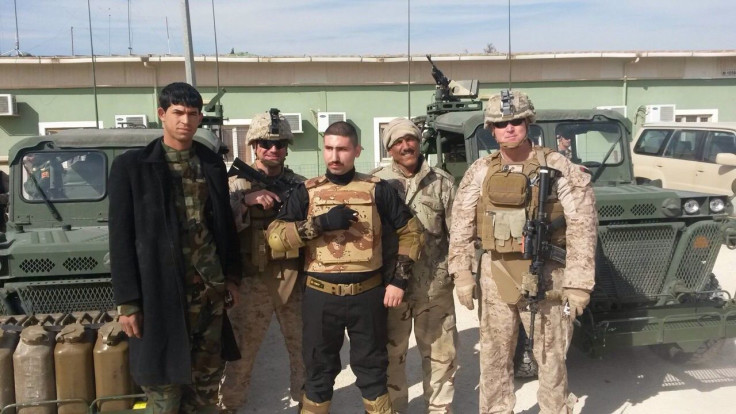Iraqi Sunni Tribes In Anbar Fighting ISIS Say They Need More US Weapons

ISTANBUL -- A U.S.-backed offensive by Iraqi troops and militias to retake land lost to the Islamic State group in the Anbar province killed dozens of enemy fighters over the weekend, but without new shipments of American weapons the effort is doomed to fail, Sunni tribal leaders in Anbar said.
The U.S. State Department said Monday that airstrikes had killed 21 militants from the group, and Sunni tribal leaders reported they had killed a total of 50 ISIS fighters in the area over the weekend. But Sunni fighters in the provincial capital Ramadi also told International Business Times that they have received only one shipment of the weapons the U.S. had promised, and that without more arms, the effort is doomed to fail.
Sunni tribal leaders in Anbar, which borders an ISIS stronghold in Syria, are fighting on the side of the Western coalition fearing that an expansion of the so-called ISIS "caliphate" would end the influence they have traditionally exerted.
The U.S. has not sent the Sunni tribes in Anbar weapons since a first installment in December, though shipments of military gear such as bulletproof vests and helmets have continued. Without another shipment of weapons, the Sunni tribes will not be able to keep the Islamic State group, also known as ISIS or ISIL, from advancing toward the capital, said Muhand Murshad Drueesh Alwany, a Sunni militiaman in Ramadi who also fought alongside U.S. troops in Anbar in 2007.
That was when the U.S. decided to use those tribes in a strategy known as "Sunni Awakening" to successfully help fight insurgents tied to al Qaeda. The success of that operation has prompted the U.S. to replicate it against ISIS, now that American troops have left Iraq and only military advisers remain. But during the Iraq War, the U.S. fielded more than 10,000 soldiers to fight about 3,000 insurgents in Anbar. The number of ISIS fighters in the area now is much higher.
There currently are between 5,000 and 7,000 ISIS fighters, drawn from Anbar tribes not aligned with the U.S.-sponsored effort, moving into the city of Fallujah, according to Majid Hussein, a political analyst based in Erbil in Iraqi Kurdistan.
Sunni fighters in Ramadi said the U.S. has in fact sent the Iraqi military more than one installment of weapons meant for the Sunni American allies in Anbar, but they are being held in Baghdad by the Iraqi government, dominated by Shiites.
There is one main Iraqi military contingent working with the Sunni tribes that delivers the U.S. military gear to the Sunni tribes in Anbar, and that contingent works well with the leaders in the area, Alwany said. But the Sunni tribes and the Iraqi military will not win the fight against ISIS in Anbar by themselves, he said.
“There are Shiite locals that have taken up arms, mostly Russian-made arms that are provided by Iran, to fight ISIS,” said Azhar Shalalee, a political activist based in Anbar. "The locals help some Sunni elements and clans that want to get rid of the Islamic State."
The U.S. support is funded by the Iraq Train and Equip Fund, included under the defense budget's Overseas Contingency Operations allotment. That fund allocates money to the Iraqi military and to the Kurdish militias, and to training and equipping tribal forces. As part of the fiscal year 2015 budget, the U.S. allocated more than $24 million of the fund to tribal security forces.
© Copyright IBTimes 2025. All rights reserved.





















